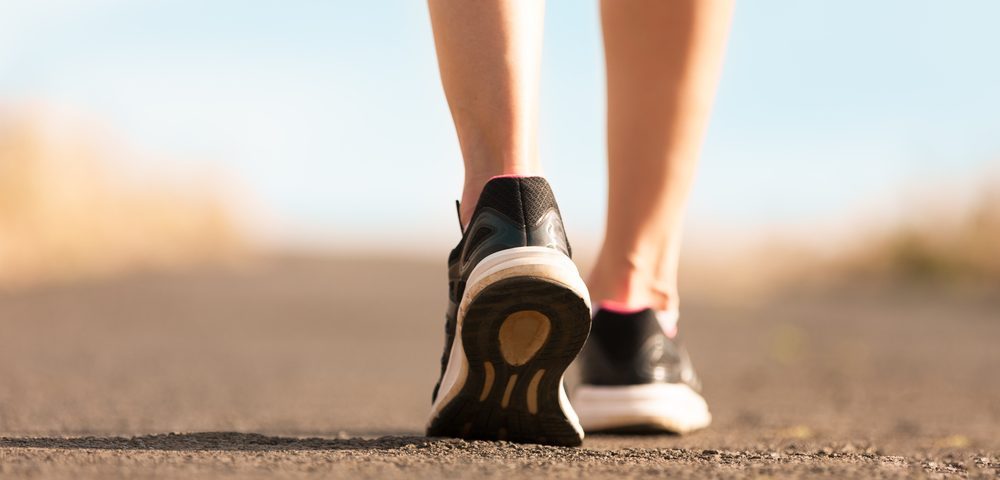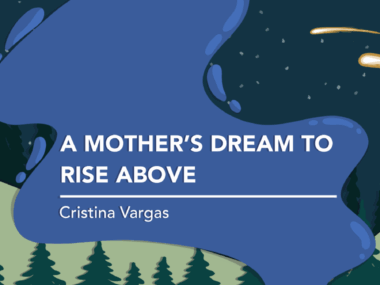Batten Disease: Life, Interrupted
Written by |

The message landed in my inbox just before lunch on Day 61 of the quarantine. I was working from home while making lunch for my 1-year-old son, juggling content strategy with clementines. Shuttling between my makeshift standing desk and Jack’s already messy highchair, I glanced down at my phone quickly, catching the email subject line in the corner of my eye.
“Refund issued: 2020 Beach to Beacon 10K.”
And there it was — another race cancellation in a string of star-crossed dates on a once stimulating, now startlingly empty 2020 calendar. This one wiped out the coveted entry I’d landed on my first shot at a slot in one of the country’s most famous 10Ks. Only a week earlier, I’d canceled my flight to Jackson Hole for Wyoming’s Grand Teton Half Marathon in June — which, if my Kentucky race hadn’t also been scratched soon after COVID-19 infiltrated North America, would have made the Cowboy State the halfway point in my quest to run in all 50.
I started the journey on the high-altitude rim of Oregon’s Crater Lake in 2014, nine months after I ran a half-marathon blindfolded for the first time. It was that race, inspired by my blind sister’s courageous 5K on the same course, that also drove me to write a book. It was that race, fueled by endless love for Taylor and intense hate for Batten disease, that changed my life forever yet also left me wanting more.
The first five years tossed its fair share of tests my way. It seemed that for every finish line I crossed, my sister only grew sicker. I trained my way to peak athletic condition as Taylor’s health spiraled downward. Batten disease finally got the best of her in 2018, but her legacy — and my will to keep going — remained.
Then 2020 happened. I injured my ankle on New Year’s Day. We buried my grandfather on Valentine’s Day. Meanwhile, I healed and loped my way toward winter’s last song, that March race like a bright beacon on the horizon. Then, on March 11, the World Health Organization declared the coronavirus a pandemic. On March 12, I got my first cancellation.
It’s hard to know when I’ll toe the line for Taylor again. My husband and I have agreed to throw in the towel on trips that require air travel this year, but I haven’t stopped training (I ran 11.3 miles before writing this column). I like having a goal, even if I can’t connect that goal to an officially sanctioned event. I like having a reason to push myself to go faster. Get stronger. Live better.
Maybe I’ve always been this way, but I’m inclined to think I got my iron will (and maybe a stubborn streak) from my sister. My sister, whose Batten disease diagnosis interrupted so much more than 10Ks and half-marathons, race medals and realized goals. My sister, who was so sick at age 15 that no one questioned our parents’ decision to pull her out of school for good.
I hold tightly to one photo from my college graduation day. In it is my little sister, my mortarboard crooked on her blond head, the broad grin on her face appearing like giddy pride. A long time ago, I looked at that picture and dreamed about watching Taylor grow up. But then anger and grief moved in to cloud my memory of a happy day.
And this month, those feelings reared their ugly heads in the face of a near-constant stream of graduation-related posts on social media. Because my sister, like so many of the friends who stuck with her through Batten disease, should have graduated from college this month.
I’m missing races right and left. But that’s nothing. Because while I’m hopeful my own life will get back to its regular programming once we’re on the other side of COVID-19, Taylor will never get that chance. Her life just … ended.
And that’s exactly why my fight against Batten disease never will.
***
Note: Batten Disease News is strictly a news and information website about the disease. It does not provide medical advice, diagnosis, or treatment. This content is not intended to be a substitute for professional medical advice, diagnosis, or treatment. Always seek the advice of your physician or other qualified health provider with any questions you may have regarding a medical condition. Never disregard professional medical advice or delay in seeking it because of something you have read on this website. The opinions expressed in this column are not those of Batten Disease News or its parent company, Bionews Services, and are intended to spark discussion about issues pertaining to Batten disease.






Leave a comment
Fill in the required fields to post. Your email address will not be published.